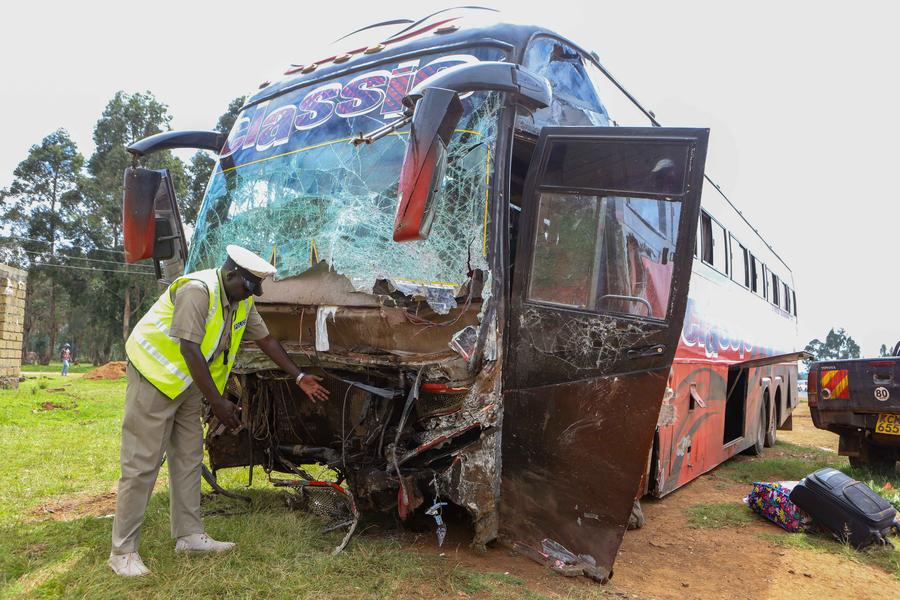Africa has become an epicenter of deaths arising from road accidents, exerting strain on the continent's public health infrastructure, the World Health Organization (WHO) said in a report launched Tuesday.
NAIROBI, July 17 (Xinhua) -- Africa has become an epicenter of deaths arising from road accidents, exerting strain on the continent's public health infrastructure, the World Health Organization (WHO) said in a report launched Tuesday.
Despite accounting for 15 percent of the global population and 3 percent of vehicles, the African region recorded one-fifth of all road accident deaths in the world, says the 2023 status report on road safety in the WHO African region.
According to the report, released in Nairobi, the Kenyan capital, Africa lost 250,000 lives in road accidents in 2021 alone, while the continent's road-related fatalities increased 17 percent between 2010 and 2021, while global rates fell 5 percent during the same period.
A myriad of factors, including lethargic enforcement of traffic laws, potholed roads, speeding and drunk driving, limited safety education targeting road users, have been cited by the report as leading causes of traffic injuries and deaths on the continent.
"The findings of this report point to a serious public health concern for African countries, with hundreds of thousands of lives being lost unnecessarily," said Matshidiso Moeti, the WHO regional director for Africa.
Moeti said the WHO is working with partners across Africa to tackle the scourge of road accidents that has taken a toll on the productive segment of the population.

The WHO report says that men aged between 15 and 64 form the bulk of road accident victims in Africa, while vulnerable users, including pedestrians, people living with disabilities, children, cyclists and motorcyclists, have also been affected disproportionately.
In addition, limited investments in alternative modes of transport, including cycling and walking, have fueled road-related fatalities on the continent, according to the report, which observed that only 13 percent of countries have national strategies to promote walking or cycling.
Abdourahmane Diallo, the WHO representative in Kenya, said that for Africa to reduce the burden of road accidents, countries should revamp transport infrastructure, retrain motorists, and promote safety education targeting motorists, pedestrians and cyclists.
Diallo added that sharing best practices on road safety, policy reforms, enforcement of existing legislation, and improving data collection are key to minimizing road fatalities on the continent.
Chiara Retis, the team leader for Violence and Injury Prevention at WHO Africa, called for investment in post-crash care and the reskilling of first responders while encouraging the use of safety belts and helmets to reduce fatalities on the continent's roads. ■











